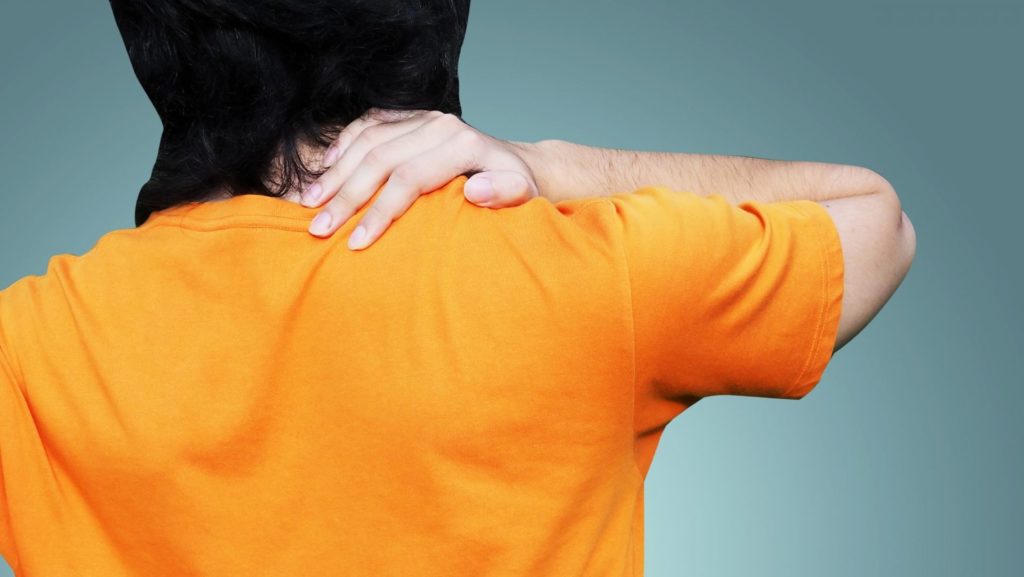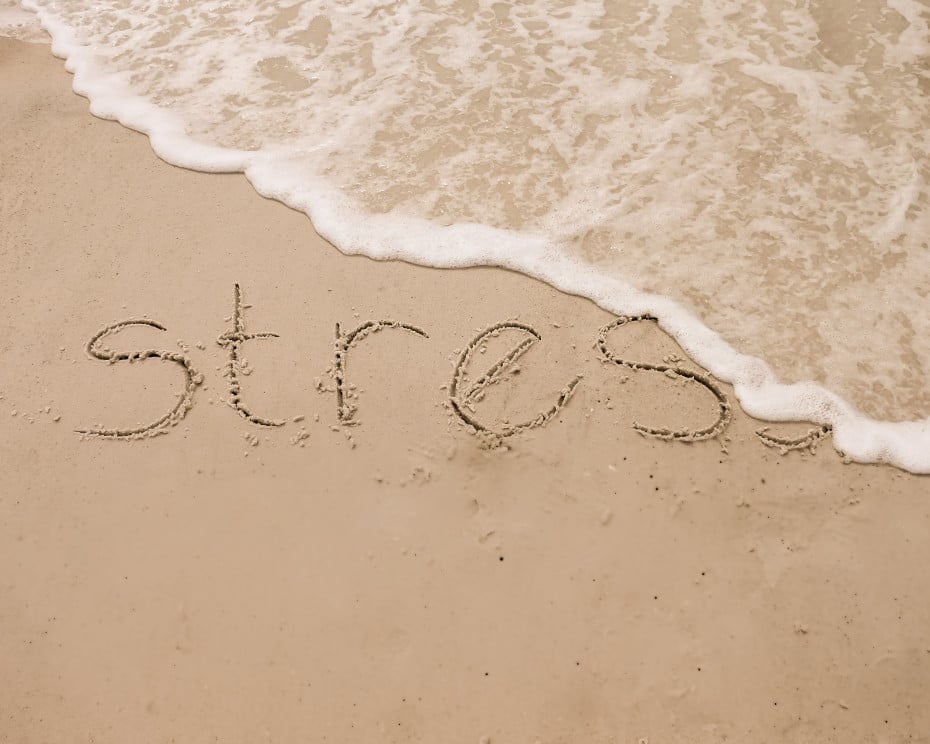Read time: 10:17 mins
With all the uncertainty going on in the world right now, our mental health is being put to the test. The good news is the unfortunate stigma of discussing mental health seems to be disappearing. People are talking about mental health now more than ever, realizing the importance of it in their daily lives.
Similarly, attitudes toward the wellness aspects of cannabis use are also changing, specifically how it could be used to reduce stress, anxiety and insomnia.
For those of us in our 40s or older, we may be anxious about an uncertain future, or stressed about our career, finances, caring for a spouse or senior parent, or a whole host of other reasons. All these things could keep our mind racing at night and may make it difficult to fall asleep or get an uninterrupted night of rest, which may lead to insomnia.
In fact, a recent study from Penn State University reveals that people 45 to 65yrs. feel more stressed now than their counterparts did in the 1990s. Stress that’s left unchecked can contribute to many health problems, such as high blood pressure, heart disease, obesity and diabetes, as well as headaches, muscle tension or pain.
While Saturday, October 10 is World Mental Health Day, a day to raise awareness of mental health issues around the world, we can also use this day to kick-start our own mental health journey or assist in a loved one’s. In that spirit, Three Wells is here to help you discover and understand the potential health and wellness benefits of CBD and cannabis as it relates to your mental health.
How Our Bodies React to Stress
When we’re stressed, our bodies increase their production of adrenaline, a stimulating neurotransmitter, which leads to an increase in cortisol, a stimulating hormone. Physical changes include: an increase in heart rate and blood pressure (to get more blood to the muscles, brain and heart), faster breathing (to take in more oxygen); tensing of muscles (preparation for action), increased mental alertness and sensitivity of sense organs (to assess the situation and act quickly); increased blood flow to the brain, heart and muscles (the organs that are most important in dealing with danger) and less blood to the skin, digestive tract, kidneys and liver (where it is least needed in times of crisis). In addition, there is an increase in blood sugar, fats, and cholesterol (for extra energy) and a rise in platelets and blood clotting factors (to prevent hemorrhage in case of injury). Once the stress ends, our system tries to restore balance and return to normal functioning. However, if stress is chronic, restoration cannot occur, and instead of feeling energized, you can feel fatigued.
How Can Cannabis Help With Stress?
Put simply, cannabis’s two key ingredients THC and CBD work together to calm us down. The THC balances out our endocannabinoid system and the CBD works with our serotonin receptors to lower our heart rate and blood pressure which creates a natural calming effect.
To understand how cannabis can affect stress, we must first remember that THC acts as a cannabinoid receptor (CB) mimicking the effects of the cannabinoids that our bodies naturally create. These CB receptors are a key part of our ECS (endocannabinoid system) which keeps our body’s systems in balance. The ECS helps regulate stress by reducing the activity of the “hypothalamic–pituitary–adrenal axis” (HPA axis). Simply put, the HPA axis contributes to the body’s “fight or flight” responses I mentioned earlier. If we can help the ECS lower the HPA’s impact on our bodies, this reduces the physiological effects of stress. To that end, the THC in cannabis helps our ECS get back into balance.
Scientifically speaking, stress changes the level of anandamide (AEA), sometimes referred to as “the bliss molecule,” named after ananda, the Sanskrit word for joy or bliss. Stress also affects 2-Arachidonoylglycerol (2-AG), another endocannabinoid. Stress reduces AEA and increases 2-AG. Going further, chronic stress hurts our cells ability to function well and recover which leads to the loss of CB1 receptors. Adding THC into our body compensates for this loss of the CB1 receptors. A good analogy might be eating a protein bar after working out; it gives your body fuel to recover. Adding THC into your body feeds our ECS to help fight the harmful effects of stress.
Research has found that THC dosage is important, and surprisingly, the old adage of “less is more” turns out to be right when it comes to THC dosing. High doses of THC can actually increase our body’s reaction to stress, so, as far as THC goes, low doses are better than high doses to manage stress.
As you probably already know, traditional cannabis contains both THC and CBD. Unlike THC which feeds the CB1 receptors in our bodies, CBD does not act in the same way. The value of CBD in stress management is its well-known calming effect, and it reduces anxiety. CBD acts through multiple receptors including the serotonin receptor, 5HT1A, which affects our mood. CBD is effective in lowering blood pressure and heart rate through its action on this receptor. CBD also helps reduce anxiety. In addition, there is a synergistic effect of using CBD with THC to reduce the “euphoric” effect of THC while preserving other positive results. Both CBD and THC types of cannabis have been shown to be helpful in patients with post-traumatic stress disorder in covering a great array of effects – to reduce hyperarousal, decrease anxiety, treat depression, help disordered sleep, and keep our ECS in balance, to name a few.
The important thing to consider is what stress symptoms do you have? Are you in the early – overstimulated, jittery phase and need to calm down, or are you in a later, more fatigued phase and need a pick-up? Different strains of cannabis are more effective for calming, while others may be used for restoration and improving energy. One thing that is universal for all stages of stress is to relax, try meditation, maintain your health, eat a balanced, healthy diet, get a good night’s rest, and stay positive.
Related Content:
What is Anxiety?
Experiencing occasional anxiety is a normal part of life. However, people with anxiety disorders frequently have intense, excessive and persistent worry and fear about everyday situations. Often, anxiety disorders involve repeated episodes of sudden feelings of intense anxiety and fear or terror that reach a peak within minutes (panic attacks).
These feelings of anxiety and panic interfere with daily activities, are difficult to control, are out of proportion to the actual danger and can last a long time. You may avoid places or situations to prevent these feelings. Symptoms may start during childhood or the teen years and continue into adulthood.
Common anxiety signs and symptoms include:
- Feeling nervous, restless or tense
- Having a sense of impending danger, panic or doom
- Having an increased heart rate
- Breathing rapidly (hyperventilation)
- Sweating
- Trembling
- Feeling weak or tired
- Trouble concentrating or thinking about anything other than the present worry
- Having trouble sleeping
- Experiencing gastrointestinal (GI) problems
- Having difficulty controlling worry
- Having the urge to avoid things that trigger anxiety
How Can Cannabis Help With Anxiety?
In human studies of the brain, it was found that CBD increased blood flow to the areas of the brain that are known to control anxiety. CBD was compared to a placebo and two anti-anxiety medicines for treatment of social anxiety. CBD was found to be as effective as the two known anti-anxiety medicines and was significantly more effective than the placebo.
In a similar study, patients with social anxiety who received CBD had less body symptoms of anxiety and less negativity about public speaking than those who received a placebo. Also, a synthetic cannabinoid was found to reduce anxiety in patients suffering from anxiety disorders after a month of treatment.
However, THC, the most prominent medicinal compound in cannabis, is known to cause an anxiety reaction in high doses in some patients. CBD, the second most common compound in cannabis, appears to ease anxiety even if taken in high doses (and has no psychoactive effects). It is now thought that the terpene profile, which determines many strain characteristics, is most important in mood effects, allowing some high THC strains to actually be relaxing.
There are many ways to treat anxiety with cannabis. Smoking a relaxing strain, perhaps with the terpene linalool, with the aroma of lavender, is a good choice. This can be a strain that is a THC-CBD hybrid. You can also vaporize such a strain, but it must be done with a vaporizer that uses full flower, to retain the terpene content. Strains that are THC dominant are not recommended since they may make anxiety worse. Alternatively, CBD dominant preparations, even in oil or tincture formulation without terpenes are useful. A dose of 10 mg of CBD, or a CBD/THC mix with a 4:1 ratio is useful. This can usually be found in a tincture. Or, you can vaporize an oil that has this ratio, having one to two puffs every 3-4 hours. And a handy CBD rich mouth spray that can be carried in your pocket is a good choice for immediate rescue for panic episodes.
Related Content:
- CBD, Anxiety and Panic Disorder
- Webinar Replay: Using CBD and Cannabis for Anxiety
- Don’t be a Karen. Marijuana May Lower Your Anxiety
What is Insomnia?
Primary insomnia is sleeplessness that is not derived from medical or environmental causes, and sufferers find it difficult to go to sleep or stay asleep. Estimates vary, but 30-60 percent of adults say they have poor sleep several nights per week. Often, the mind is overactive and doesn’t allow rest. Insomnia can also occur during times of stress which releases the hormone cortisol. It may be associated with altered neurochemicals such as the “sleep” neurotransmitters (serotonin or GABA). Sleeplessness may also occur as a result of substance abuse or a withdrawal problem. Disturbance of the biological clock, such as from a shift in time zones or different job shifts can also result in insomnia. Poor sleep habits often contribute to the problem. Medical conditions that cause insomnia include sleep apnea, restless legs, night sweats and pain.
How Does Cannabis Help You Sleep?
Patients who use medical cannabis for insomnia routinely report that it improves natural sleep. In a survey of patients in California, 71% stated that they were using cannabis to improve sleep, with 14% reporting that it was the main symptom for which they were seeking treatment.
Many had tried over-the-counter sleep aids or had been given a prescription for sleeping pills. They complained that sleeping pills didn’t work very well or had a “hangover” effect the next day. Some were concerned about the side effects or potential habit-forming properties of prescription sleeping aids.
Most patients have traditionally used THC rich strains for sleep as THC can reduce the time it takes to fall asleep, decrease REM sleep, and increase total sleep time. In studies of Sativex, an extract with approximately 1:1 CBD/THC, they found that “Sativex, while having little effect on the recorded sleep hours, rather produced marked changes in reported sleep quality.”
Several studies of Sativex in patients with pain confirmed improved sleep quality. Patients with insomnia used strains of mixed CBD and THC content. According to their data, it looks like a 1:2 mix of CBD/THC produced good results for sleep. They noted the strains and found Indica to be better than Sativa. CBD alone is generally not helpful for sleep unless it is used in high doses.
Research indicates that patients report improved sleep when using cannabis. Most patients who use cannabis for insomnia report better sleep with less drowsiness the next day as compared with over the counter or prescription medications. In fact, it suggests that CBD can reduce or eliminate their previous sleeping medicines, with fewer side effects.
Ironically, many pharmaceuticals that are used to treat insomnia may actually cause sleeplessness if they are withdrawn or skipped. Cannabis does not appear to create the same sort of dependence so people can use it as needed.
Related Content:
If you’re dealing with stress, anxiety or insomnia, it’s important to remember you’re not alone. Millions of people around the world experience one or more of these conditions at some point in their lives. So, this World Mental Health Day, whether it’s in support of your own mental health or of someone you care about, and you are interested in exploring how CBD or cannabis could help, Three Wells is here for you.
Source: Mayo Clinic




